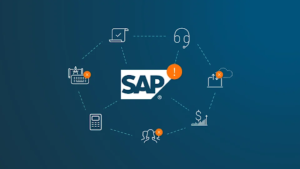Nowadays, business has become large-scale and highly compartmentalized across specializations. Thus, business firms nowadays must cater to multiple communications, transactions, and collaborations at every moment. This requires a large, specialized workforce and the utmost flexibility in handling business processes. Enterprise content platforms utilize organized processes to collect and collate information, distribute it across channels, and perform complicated transactions in a very short time.
AI, robotic automation processes, and security maintenance processes help these platforms create a unified digital workplace for businesses. The software for enterprise content management has evolved through the years as new and innovative content is being introduced to professional environments. Thus, smart information management in this age of digital processes and storage plays a critical role in the effective governance of records and operations.
Why Should Modern Businesses Utilize Enterprise Content Management Software?
The more a business grows in scale, the more official procedures it will have to follow. Information on employees, records of business strategies, invoices, and spreadsheets for transactions need to be looked after. Again, digital communications via email, digital contracts, and audio and video files for required projects must be safely maintained. It is impossible to manually handle such a huge amount of paperwork and digital information. With their automated processes and machine analytics, enterprise content platforms help complete these tasks much faster. Due to smart technology, they also act as a safe repository of sensitive information. Let us see why employing enterprise content management platforms can help businesses in effective information governance:
- While working with large volumes of digital and physical records, it is essential to streamline content distribution. Enterprise content management software helps to achieve this with modern technology.
- Automating workflow can lead to much faster completion of tasks and business formalities. Enterprise content management platforms employ AI and robotic automation to achieve full benefits.
- Manual processes to capture and manage content in a secure, centralized repository may need fixing and loss of time. Enterprise content management software can capture content from multiple sources and create a safe, unified repository. Using technological strategies and tools can also enable sharing information across various channels. Thus, it helps businesses build a boundless workplace online, with access at any time from anywhere.
What Are the Beneficial Features of Enterprise Content Management Platforms?
The success of a digital business transformation initiative depends upon its content management platform. Such a platform uses its software to digitally govern records and transactions for different use cases for effective business processes and decisions. Some features of enterprise content management platforms that greatly benefit business on a large scale are:
Content Lifecycle Management
This allows content management platforms to create, manage, archive, and share various forms of content with access from anywhere. Complete records management with flexible delivery and access across all channels and devices is possible.
Digitization of Business Processes
Front- and back-end business processes can be effectively digitized with the help of content services platforms. This is done while intelligently capturing and extracting critical information from both physical and digital resources. Low-code content workflow capabilities can be leveraged too. This ensures rapid design and development of content-centric applications.
Productivity of Employees
Anytime, anywhere access to information can be enabled with enterprise content management platforms. This will allow employees to stay updated on all business information and details. Thus, effective communications with customers and collaborators can be carried out. Even the onboarding of employees can be efficiently managed through digital processes on these platforms.
Content Intelligence
Enterprise content management software lets businesses go beyond traditional content management. It utilizes AI-powered capabilities for accurate content extraction and automatic classification of files. Machine learning enables smarter analysis of data for smarter decision-making is also achieved.
Information Governance and Compliance
Content management platforms with modern technology ensure safe access to content. It also resists unauthorized access to information that may not be ensured manually. Long-term retention and disposition of enterprise records are also achieved. Records management certifications also help to mitigate risks and meet regulatory compliance.
Conclusion
Modern business involves communications across various channels on a large scale. Again, digitization of information has brought about innovations in business content management. Enterprise content management platforms utilize software with AI-powered tools, robotic automation, and machine analytics to revolutionize information governance. It helps to create a centralized repository of all records and transactions for faster operations.




